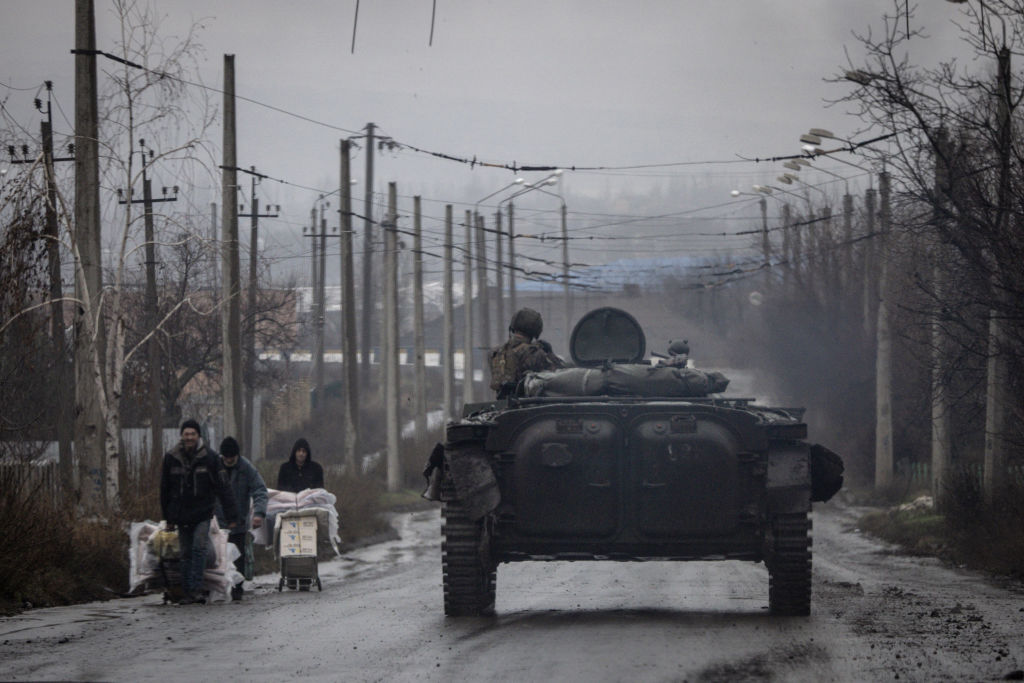As the House GOP continues to make a fool out of itself trying to elect a speaker, those watching might be wondering how all of this will impact the war in Ukraine. The group of around twenty Republican lawmakers who have opposed Kevin McCarthy in the (as of this writing) eight votes taken so far for the speakership include some of the most hardline anti-Ukraine-aid Republicans, like Lauren Boebert and Matt Gaetz.
A group this small in the House should be nothing more than an annoyance, but the changes they are demanding — and even those McCarthy has conceded to — give them far more power. The most threatening among them is a provision to return to the system whereby one member of the House can launch a motion to vacate the chair, forcing an up or down vote on the speaker. McCarthy originally wanted to keep the GOP rule that requires half of the Republican caucus to launch the motion, but in his desperation to gain the gavel he completely ceded the issue.
How this impacts Ukraine aid is a bit abstruse, but here’s what could happen. The Republicans who are blocking McCarthy from the speakership are ideologues interested in attention and raw power, not productive policymaking. This is clear from the ridiculous nature of their seemingly never-ending and ever more extreme demands. As Tuesday’s Commentary podcast noted, the anti-McCarthyites are also mostly in safe districts without much to worry about.
When the next package of Ukraine aid comes up in Congress, one Republican member (or likely more) could, with the new rules, threaten to force a vote on McCarthy’s speakership unless he cuts aid. If McCarthy holds firm, the member could follow through on the threat (in fact, the present chaos indicates he or she most likely will follow through) and initiate a vote. In the event that most Democrats vote against McCarthy — which is not a given, but certainly a possibility — it would only take a small number of Republicans to bring the “no” vote over the 218 threshold.
There are two benefits for Democrats if they vote “no”: they can highlight the Republicans’ ineptitude, and they can take down a GOP speaker. If you do not think they would do this, think again. The Democratic Party helped fund quite a few far-right candidates in the 2022 midterm primaries, knowing fringe Republicans would be easier opponents in the general election. What price did they pay? They won most of those races. So even if joining in to throw out a GOP speaker leaves a sour taste in moderates’ mouths, the Democrats know that when those same independents see the absurdity on the right, they will say no way to the GOP.
With the prospect of losing the speakership looming over him, McCarthy would probably choose to — wait for it — make concessions. It is also likely that the rest of the caucus would prefer to sacrifice aid than to face another shambolic battle for the speaker’s seat. Will this mean Ukraine aid is completely absent? Probably not, but it could mean a dangerous reduction in American military and financial support at a time when Ukraine needs it to win the war.
But what if McCarthy demonstrates what he very rarely has demonstrated: that he has a backbone? What if he refuses to give in to the demands of the fringe and faces the consequences of a motion to vacate the chair?
Either he would be voted out of the speakership, survive the vote (likely with the help of Democrats), or the insurgents would back down. If the chair is vacated, then whoever the next speaker is would be terrified of facing the same fate, and barring some miracle, would probably follow the McCarthy model and make concessions. The best result would be that McCarthy survives or forces the agitators to step back, at which point he would be empowered and Ukraine aid should be safe. Unless, of course, he then decides to cede some ground on the issue in a sign of intraparty goodwill, or (more likely) simply to forestall another vote on his speakership.
There is always the possibility that none of these scenarios come to pass, but it is not hard to see the fringe of the GOP threatening to derail support for Ukraine. A majority of the caucus and the Congress are in favor of keeping Ukraine supplied through the conflict, but if the new rules are in effect, this may not be enough.

























